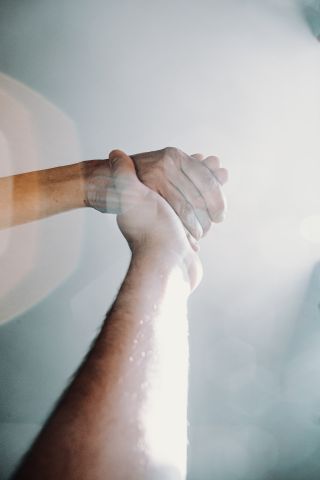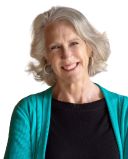Friends
"Will You Be With Me at the End?"
A Personal Perspective: A challenging, yet necessary, question for those without kids.
Posted March 19, 2023 Reviewed by Abigail Fagan

It’s a big ask—Will you be with me at the end? When you don’t have kids, uttering those words can be downright terrifying. Yesterday I was on the receiving end of the question.
My dear friend Wendy (not her real name), long widowed and childfree by choice, asked me to be her medical advocate. If she couldn’t handle arrangements herself at the end, would I come? My response surprised us both.
You might think those of us without kids wouldn’t give much thought to our end game. But many of us (not just elders) do, often obsessively so, because we know no one is obliged to care for us.
While most parents automatically default to their adult children to take on such roles, the path isn’t so clear when you’re on your own. The childless and childfree have no default.
Even if partnered, your mate could predecease you or be ill-suited to the task. Siblings and contemporaries may be fine choices when in our seventies or younger, but at some point we need younger, more agile designees.
Fortunately, many childless and childfree people enjoy friendships both younger and older. I think that’s because we don’t divert life energy to overseeing our progeny’s maturing process. Rather, our friendship circles are often continuous, deep, and diverse, based on shared experiences and interests.
But do we really want to saddle our friends with such intimate and potentially challenging roles? If we care what may happen to us during our final days, we have no option. Choices must be made.
A few years ago, after my marriage ended, I sucked it up and asked younger friends to take roles for my future needs if I couldn’t manage them myself. I was petrified and stumbled through my request with detailed contingency plans, just so they wouldn’t feel pressured. They all said yes. Almost immediately. I was flabbergasted by their quick response.
My friend Wendy is nearly old enough to be my mother, and I’ve been urging her to make arrangements for her later years. Yesterday she took a big step. I heard in her voice the same hemming and hawing I once displayed. She danced around the issue, talked about the weather. Finally, she blurted out the question. “It’s not a fun job,” she added. “You can think about it and tell me later.”

We’ve known one another for over two decades. Though we live on opposite coasts, we see each other every few years, and we enjoy frequent and deliciously long phone conversations. This deeply spiritual woman is my adored mentor, mother of my heart, and best friend rolled into one. She also serves as my source for trashy Netflix shows.
“I don’t need to think about it,” I told her. “I know my answer.” I knew this was true the moment she asked.
A few years ago I went to my mother’s side bearing the weight of filial obligation. Hers was not an easy death, and ours was a fraught connection to the very end. After her long trajectory into dementia, it was an emergency kidney infection that took her, quickly and unexpectedly. I’m glad she was spared late-stage dementia.
By contrast, my friendship with Wendy is based on common values and compatible temperaments. She is delightful company, deeply spiritual, and a pragmatic guide for the aging process. She knows and can clearly articulate what she wants and what she doesn’t want for her death. All that remains is the paperwork. She knows I’ll pester her until it’s completed.
Having sat vigil at several deaths, the coming days will be far from easy. When she needs me, I will act as her staunch supporter. Filling this role is a privilege, not a duty, a small but potent act of love for a woman who has changed the course of my life.

Yes, I told her. I will advocate for you and will fight fiercely to honor your wishes.
My beloved friend now knows who will hold her hand when she dies. I’m honored to say It’s me.


